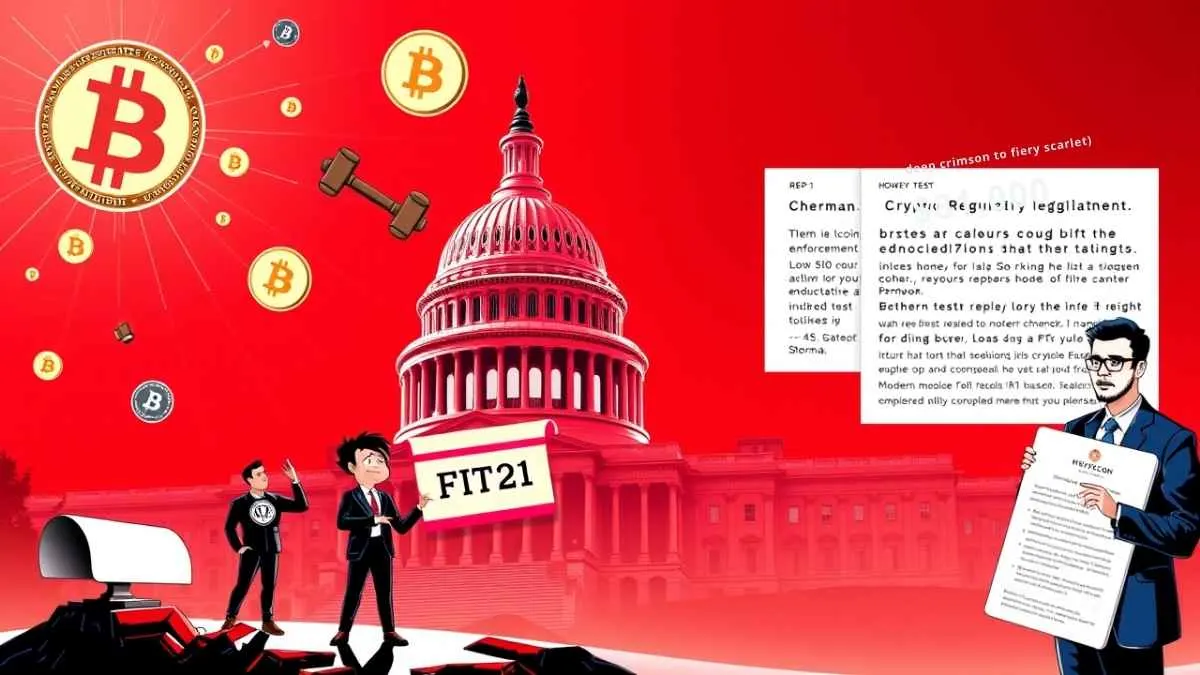Lawmakers in the U.S. are speeding up their efforts to pass regulatory legislation for cryptocurrency because the digital asset market is rapidly gaining popularity. The move coincides with rising worries about the Department of Justice’s (DOJ) reduction of crypto enforcement staff.
Crypto Regulation Takes Center Stage in Congress
During its Wednesday meeting, the United States House Financial Services Committee disclosed important developments regarding its mission to create a complete regulatory system for crypto markets. The crypto industry faces regulatory uncertainty because digital assets have no established federal laws to guide industry operations, while demands for regulation continue to increase.
- The House Financial Services Committee Chair, French Hill, R-Ark, stressed the necessity of passing comprehensive regulatory legislation.
- We need to sustain the present stride by developing a regulatory framework that officially describes the rules of the digital asset market landscape.
Congress is accelerating the introduction of dual legislation, which consists of the stablecoin bill and broader market structure regulations. The House and Senate committees drafted bills that included stablecoin reserve standards and essential regulatory standards for issuers. Most Republican members have backed the bills, but many Democratic representatives have also voted in favor of their passage.
Analysis of the Market Structure Bill with its Associated Obstacles
The two stablecoin bills and market structure legislation constantly work together, so Rep. Bryan Steil, R-Wis. advocates their simultaneous progression. United States President Donald Trump showed interest in receiving committee-approved versions of these two bills at quick intervals. Chair Hill recently informed that the market structure bill might become officially public soon.
A House majority passed the Financial Innovation and Technology for the 21st Century Act (FIT 21) last year, with both Republican and Democratic representatives supporting the bill after former Speaker Nancy Pelosi supported its passage. Due to its simpler structure, the stablecoin bill remains easier to pass than its market structure counterpart.
Concerns About DOJ’s Crypto Enforcement Strategy
Some government representatives worry about the DOJ ending its crypto litigation division operations. During his recent remarks, Deputy Attorney General Todd Blanche declared that the DOJ functions separately from cryptocurrency regulation duties, and this disclosure caused worries among those advocating for enforcement leadership.
The Department of Justice received strong opposition from Rep. Sylvia Garcia of Texas because she believes the DOJ should examine
The DOJ declined to regulate digital assets, which leaves the question about who else would pursue this responsibility. What will become of the situation when the government chooses not to regulate?
Several observers, including Garcia, expressed these reservations because the Securities and Exchange Commission (SEC) dismissed multiple cryptocurrency cases. Some legislators decided to step in because federal laws about cryptocurrency remain unclear.
Call for Modern Crypto Regulations
California Democratic Congressman Brad Sherman, who regularly targets the crypto industry, endorsed the necessity of contemporary regulatory approaches. According to Sherman, the outdated 1946 Howey Test from the U.S. Supreme Court about orange groves should not be the basis for evaluating crypto assets as securities. He stated:
A regulation suitable for today’s era must be written before the end of this century. The crypto market should not receive its regulatory framework from a judicial precedent that dates back to the 1940s.
Sherman concluded that Washington’s power imbalance creates obstacles to implementing meaningful regulation, despite which he believed crypto regulation remains equally important.






